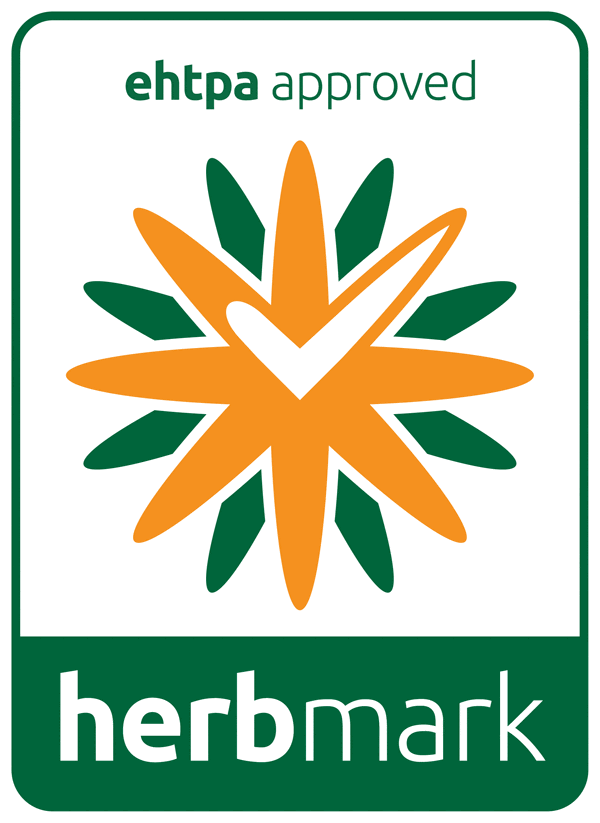Acupuncture for Chronic Pelvic Pain
According to Royal College of Obstetricians and Gynaecologists there is preliminary evidence that acupuncture is effective in reducing the severity of dysmenorrhoea
when compared to an untreated control group. Two small trials included in this Cochrane review found that acupuncture treatment significantly reduced menstrual symptoms compared to standard non-steroidal anti-inflammatory drugs (NSAIDs).
NSAIDs are a mainstay of treatment for dysmenorrhoea and other pelvic inflammatory conditions such as endometriosis. The use of acupuncture as a potentially effective and safe intervention for pain management, without the risk of adverse gastrointestinal effects from NSAIDs, warrants further investigation.
A Cochrane review of CHM (Chinese herbal Medicine) for endometriosis found that CHM administered post-surgery had comparable benefits to the anti-progestin gestrinone, and a significantly greater effect in reducing dysmenorrhoea and shrinking pelvic lesions than danazol, but with fewer adverse reactions than
conventional treatments.
Although over 100 Chinese clinical trials have been conducted on CHM for endometriosis, methodological weaknesses led to all but two being excluded from this review. A small retrospective study involving 47 women with endometriosis who had used a regime of CHM coupled with hypnotherapy (median follow-up five years previously) found a significant long-term decrease in reported pain and analgesic use.
In its conclusion the report says: The conventional treatment of CPP may be of limited effectiveness and as a consequence women with CPP may seek non-conventional approaches to manage their symptoms.
when compared to an untreated control group. Two small trials included in this Cochrane review found that acupuncture treatment significantly reduced menstrual symptoms compared to standard non-steroidal anti-inflammatory drugs (NSAIDs).
NSAIDs are a mainstay of treatment for dysmenorrhoea and other pelvic inflammatory conditions such as endometriosis. The use of acupuncture as a potentially effective and safe intervention for pain management, without the risk of adverse gastrointestinal effects from NSAIDs, warrants further investigation.
A Cochrane review of CHM (Chinese herbal Medicine) for endometriosis found that CHM administered post-surgery had comparable benefits to the anti-progestin gestrinone, and a significantly greater effect in reducing dysmenorrhoea and shrinking pelvic lesions than danazol, but with fewer adverse reactions than
conventional treatments.
Although over 100 Chinese clinical trials have been conducted on CHM for endometriosis, methodological weaknesses led to all but two being excluded from this review. A small retrospective study involving 47 women with endometriosis who had used a regime of CHM coupled with hypnotherapy (median follow-up five years previously) found a significant long-term decrease in reported pain and analgesic use.
In its conclusion the report says: The conventional treatment of CPP may be of limited effectiveness and as a consequence women with CPP may seek non-conventional approaches to manage their symptoms.
Chronic pelvic pain is poorly understood and, consequently, poorly managed. Chronic pelvic pain is defined as pain that occurs below the umbilicus (belly button) that lasts for at least six months. It may or may not be associated with menstrual periods. It is estimated to affect approximately one in six of the adult female population.Chronic pelvic pain is often a symptom that can be caused by several different conditions, but is sometimes a chronic condition due to abnormal function of the nervous system (often called “neuropathic pain”).
CAUSES OF CHRONIC PELVIC PAIN
A variety of gynaecological, gastrointestinal, and general disorders can cause chronic pelvic pain.
Gynaecological causes: gynaecological causes are probably the cause of chronic pelvic pain in about 20 percent of women. Some of the gynaecological causes of pelvic pain include:
Endometriosis: Endometriosis is a condition in which endometrial tissue is also present outside of the uterus. Some women with endometriosis have no symptoms, while others experience marked discomfort and pain and may have problems with fertility.
Chronic pelvic inflammatory disease — Pelvic inflammatory disease is an acute infection usually caused by a sexually transmitted organism. Occasionally, it is caused by a ruptured appendix, tuberculosis, or diverticulitis. It can involve the uterus, ovaries, and fallopian tubes (which link the ovaries and uterus). Chronic pelvic inflammatory disease occurs after acute pelvic inflammatory disease in about one-third of women and causes chronic pelvic pain. The reason for this is not clearly known, but is likely because of permanent damage to the uterus, ovaries, and fallopian tubes.
Other causes: Non-gynaecological causes of chronic pelvic pain may be related to the digestive system, urinary system, or to pain in the muscles and nerves in the pelvis:
Irritable bowel syndrome : this is a gastrointestinal condition characterised by chronic abdominal pain and altered bowel habits (such as loose stools, more frequent bowel movements with onset of pain, and pain relieved by defecation) in the absence of any specific cause.
Painful bladder syndrome and interstitial cystitis (PBS/IC): these are the terms given to bladder pain that is not caused by infection. Symptoms usually include the need to urinate frequently (frequency) and a feeling of urgently needing to urinate (urgency). Some women with painful bladder syndrome have lower abdominal or pelvic pain in addition to urinary tract symptoms.
Diverticulitis: A diverticulum is a sac-like protrusion that sometimes forms in the muscular wall of the colon (or intestine). Diverticulitis occurs when diverticula become inflamed. This usually causes abdominal pain; nausea and vomiting, constipation, diarrhea, and urinary symptoms can also occur.
Pelvic floor pain — Symptoms of pelvic floor dysfunction may include pelvic pain, pain with urination, difficulty urinating, constipation, pain with intercourse, or frequent/urgent urination.
Fibromyalgia: Fibromyalgia is one of a group of chronic pain disorders that affect connective tissue structures, including muscles, ligaments, and tendons. It is characterised by widespread muscle pain (or "myalgia") and tenderness in certain areas of the body. Women with fibromyalgia may also experience fatigue, sleep disturbances, headaches, and mood disturbances such as depression and anxiety.
A variety of gynaecological, gastrointestinal, and general disorders can cause chronic pelvic pain.
Gynaecological causes: gynaecological causes are probably the cause of chronic pelvic pain in about 20 percent of women. Some of the gynaecological causes of pelvic pain include:
Endometriosis: Endometriosis is a condition in which endometrial tissue is also present outside of the uterus. Some women with endometriosis have no symptoms, while others experience marked discomfort and pain and may have problems with fertility.
Chronic pelvic inflammatory disease — Pelvic inflammatory disease is an acute infection usually caused by a sexually transmitted organism. Occasionally, it is caused by a ruptured appendix, tuberculosis, or diverticulitis. It can involve the uterus, ovaries, and fallopian tubes (which link the ovaries and uterus). Chronic pelvic inflammatory disease occurs after acute pelvic inflammatory disease in about one-third of women and causes chronic pelvic pain. The reason for this is not clearly known, but is likely because of permanent damage to the uterus, ovaries, and fallopian tubes.
Other causes: Non-gynaecological causes of chronic pelvic pain may be related to the digestive system, urinary system, or to pain in the muscles and nerves in the pelvis:
Irritable bowel syndrome : this is a gastrointestinal condition characterised by chronic abdominal pain and altered bowel habits (such as loose stools, more frequent bowel movements with onset of pain, and pain relieved by defecation) in the absence of any specific cause.
Painful bladder syndrome and interstitial cystitis (PBS/IC): these are the terms given to bladder pain that is not caused by infection. Symptoms usually include the need to urinate frequently (frequency) and a feeling of urgently needing to urinate (urgency). Some women with painful bladder syndrome have lower abdominal or pelvic pain in addition to urinary tract symptoms.
Diverticulitis: A diverticulum is a sac-like protrusion that sometimes forms in the muscular wall of the colon (or intestine). Diverticulitis occurs when diverticula become inflamed. This usually causes abdominal pain; nausea and vomiting, constipation, diarrhea, and urinary symptoms can also occur.
Pelvic floor pain — Symptoms of pelvic floor dysfunction may include pelvic pain, pain with urination, difficulty urinating, constipation, pain with intercourse, or frequent/urgent urination.
Fibromyalgia: Fibromyalgia is one of a group of chronic pain disorders that affect connective tissue structures, including muscles, ligaments, and tendons. It is characterised by widespread muscle pain (or "myalgia") and tenderness in certain areas of the body. Women with fibromyalgia may also experience fatigue, sleep disturbances, headaches, and mood disturbances such as depression and anxiety.
Treatment of Chronic pain
Conventional treatment of chronic pelvic pain:
CPP may be a symptom of a number of different conditions which may present as pelvic symptoms.
Psychological factors also play an important role in CPP with many women reporting histories of physical, emotional and sexual abuse. The conventional treatment of CPP may be of limited effectiveness
Chronic pelvic pain due to a gynaecological condition is often treated medically. In some cases, however, surgery may be the treatment of choice.
One approach to managing women with chronic pelvic pain is to prescribe sequential drug treatments for disorders that are the most likely causes of the patient's pain.
As an example, endometriosis is the most common gynaecological cause of chronic pelvic pain. If endometriosis seems a likely diagnosis based upon the history and physical examination, then a medical therapy for endometriosis is given for a trial period.
If this is not successful, then a trial of another medical therapy is initiated.
If one of these treatments relieves the pelvic pain, then the likelihood that endometriosis is the cause of pain increases. However, it is important to note that improvement in symptoms is not absolute confirmation of a diagnosis since treatment effects are often not specific.
As an example, hormonal treatment of endometriosis may also improve pelvic congestion syndrome, irritable bowel syndrome, or interstitial cystitis/painful bladder syndrome
A different approach is to use intensive diagnostic testing in an attempt to identify the specific cause of the patient's pain, if possible, before starting specific therapy.
Although therapy targeted specifically to the patient's diagnosis might appear ideal, arriving at a diagnosis may involve costly laboratory and imaging tests, and often requires exploratory surgery.
A third option is treatment directed at pain, rather than at a specific diagnosis. Non-steroidal anti-inflammatory drugs, antidepressants, and antispasmodic medications are often used.
Surgical treatment : A few causes of gynaecological pelvic pain can be treated surgically. For example, some women benefit from surgical removal of their endometriosis.
Hysterectomy may alleviate chronic pelvic pain, especially when it is due to uterine disorders such as adenomyosis or fibroids.
However, pain can persist even after hysterectomy, particularly in younger women (those less than 30) and in women with a history of chronic pelvic inflammatory disease or pelvic floor dysfunction. Hysterectomy is not a good choice for the management of chronic pelvic pain.
CPP may be a symptom of a number of different conditions which may present as pelvic symptoms including gynaecological e.g. endometriosis, urinary tract e.g. interstitial cystitis, digestive e.g. irritable bowel syndrome (IBS) and musculo-skeletal disorders. Psychological factors also play an important role in CPP with many women reporting histories of physical, emotional and sexual abuse.
CPP may be a symptom of a number of different conditions which may present as pelvic symptoms.
Psychological factors also play an important role in CPP with many women reporting histories of physical, emotional and sexual abuse. The conventional treatment of CPP may be of limited effectiveness
Chronic pelvic pain due to a gynaecological condition is often treated medically. In some cases, however, surgery may be the treatment of choice.
One approach to managing women with chronic pelvic pain is to prescribe sequential drug treatments for disorders that are the most likely causes of the patient's pain.
As an example, endometriosis is the most common gynaecological cause of chronic pelvic pain. If endometriosis seems a likely diagnosis based upon the history and physical examination, then a medical therapy for endometriosis is given for a trial period.
If this is not successful, then a trial of another medical therapy is initiated.
If one of these treatments relieves the pelvic pain, then the likelihood that endometriosis is the cause of pain increases. However, it is important to note that improvement in symptoms is not absolute confirmation of a diagnosis since treatment effects are often not specific.
As an example, hormonal treatment of endometriosis may also improve pelvic congestion syndrome, irritable bowel syndrome, or interstitial cystitis/painful bladder syndrome
A different approach is to use intensive diagnostic testing in an attempt to identify the specific cause of the patient's pain, if possible, before starting specific therapy.
Although therapy targeted specifically to the patient's diagnosis might appear ideal, arriving at a diagnosis may involve costly laboratory and imaging tests, and often requires exploratory surgery.
A third option is treatment directed at pain, rather than at a specific diagnosis. Non-steroidal anti-inflammatory drugs, antidepressants, and antispasmodic medications are often used.
Surgical treatment : A few causes of gynaecological pelvic pain can be treated surgically. For example, some women benefit from surgical removal of their endometriosis.
Hysterectomy may alleviate chronic pelvic pain, especially when it is due to uterine disorders such as adenomyosis or fibroids.
However, pain can persist even after hysterectomy, particularly in younger women (those less than 30) and in women with a history of chronic pelvic inflammatory disease or pelvic floor dysfunction. Hysterectomy is not a good choice for the management of chronic pelvic pain.
CPP may be a symptom of a number of different conditions which may present as pelvic symptoms including gynaecological e.g. endometriosis, urinary tract e.g. interstitial cystitis, digestive e.g. irritable bowel syndrome (IBS) and musculo-skeletal disorders. Psychological factors also play an important role in CPP with many women reporting histories of physical, emotional and sexual abuse.
Acupuncture combined with Chinese herbal Medicine for the treatment of chronic pelvic pain is, in my experience, very effective:
Frequency of acupuncture treatment varies from acute conditions that may require treatment twice a week to more stable chronic conditions
where acupuncture once a month may be sufficient. Typically though, treatment is given once a week.
The duration of treatment is variable. In some instances 2–3 sessions may suffice, but in more complex recalcitrant conditions, treatment may require several months. In general there should be some noticeable beneficial changes after 3–4 sessions. the addition of Chinese herbal treatment (herbs are given on low dosage, in capsules that are easy to take often two or three times a day.
During the consultation, I will take a detailed case history' will look at your tongue and check the pulse. Information from this process is
used to define a traditional pattern or syndrome of disease. A herbal formula is then designed to address this pattern and to treat both the symptoms and the underlying cause of disease. In the UK only plant-based products are used and as a CHM practitioner I will typically select a formulation of 8 to 15 herbs from around 400 commonly used plants. This formula will be most likely be taken in capsule form, and with the same information and diagnosis from your case history, I will also start a weekly acupuncture treatment individualised to your need.
Pj Cousin is a full member of the British Acupuncture Council and of the Unified Register of herbal Practitioners
Acupuncture at Cure by Nature
95 Replingham Road, London SW18 5LU
Tel: 07720773890
For a map Click here
Appointment available weekdays only
95 Replingham Road, London SW18 5LU
Tel: 07720773890
For a map Click here
Appointment available weekdays only
Traditional Chinese Medicine (TCM)
is one of the oldest and most mysterious form of health care, the first book on this subject is about 2500 years old, and there are indications that the Chinese were already using a crude form of TCM 4000 years ago.
Today, this medical system is widely used in China, Japan, Vietnam, Korea and all around Asia; in China alone there are 2500 hospitals specialising in TCM. This complex medical system is taught in 30 Chinese universities, to thousands of students from 120 different countries.
is one of the oldest and most mysterious form of health care, the first book on this subject is about 2500 years old, and there are indications that the Chinese were already using a crude form of TCM 4000 years ago.
Today, this medical system is widely used in China, Japan, Vietnam, Korea and all around Asia; in China alone there are 2500 hospitals specialising in TCM. This complex medical system is taught in 30 Chinese universities, to thousands of students from 120 different countries.
Acupuncture at Cure By Nature
95 Replingham Road
London SW18 5LU
tel: 020 88751101
For a map Click here
Appointment available Mondays, Tuesdays, Wednesdays and Fridays
95 Replingham Road
London SW18 5LU
tel: 020 88751101
For a map Click here
Appointment available Mondays, Tuesdays, Wednesdays and Fridays
Acupuncture London: fertility clinics of acupuncture and complementary medicine at 95 Replingham Road london SW18 5LU




